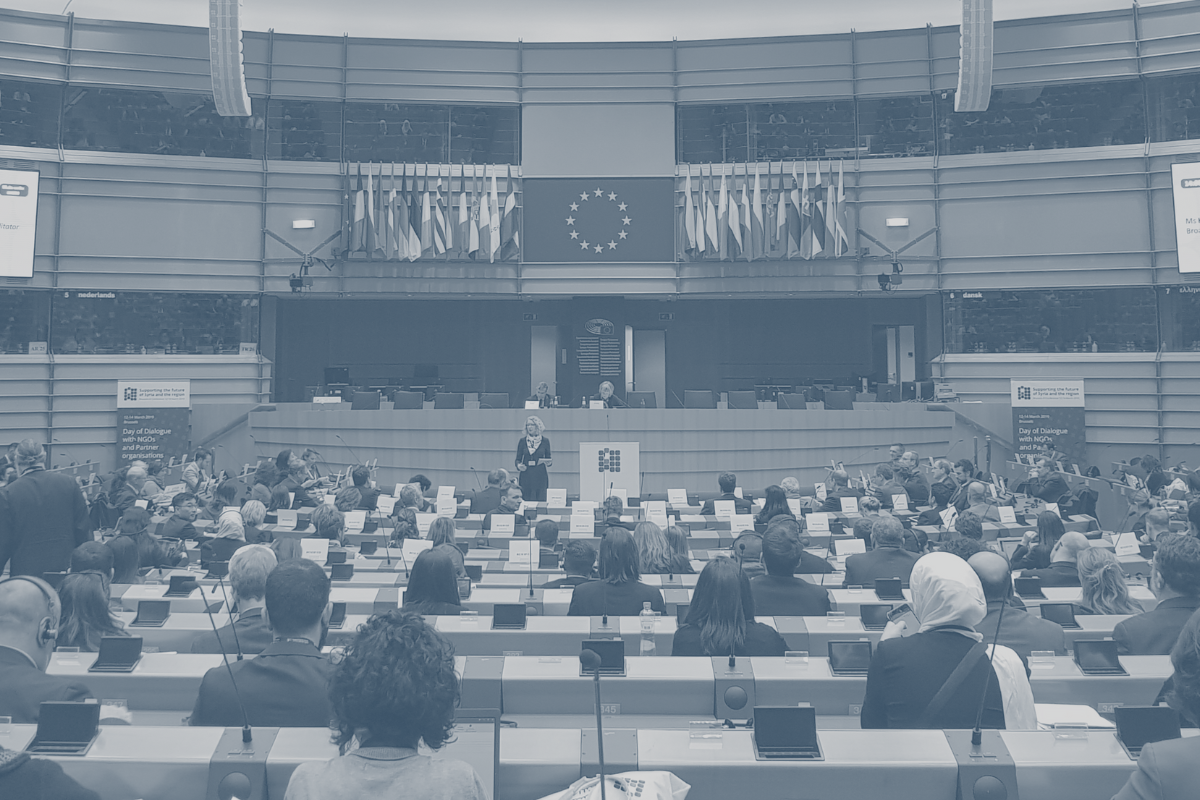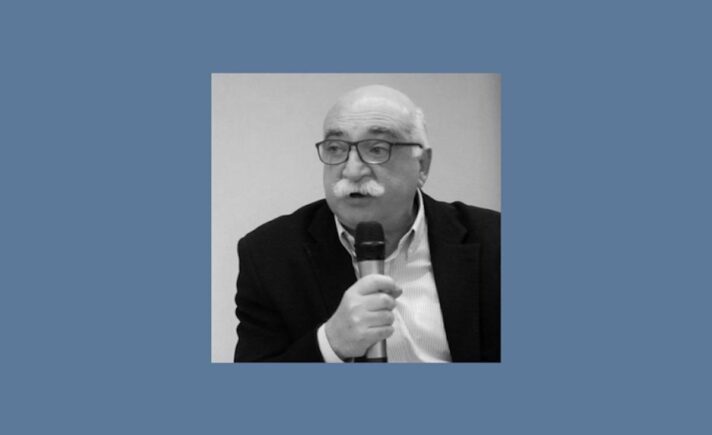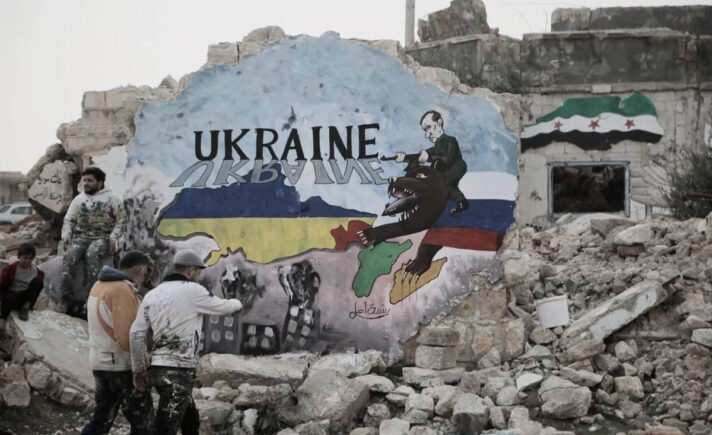A total of 9.6 billion euros, comprising grants and soft loans, stands out as the main outcome of the Seventh Brussels Conference on «Supporting the future of Syria and the region». This amount surpasses the average presented at this annual conference and falls around $1 billion short of the funding requested by UN agencies leading up to the event. The announced figure conceals several noteworthy details that demand attention. Notably, there have been shifts in the rankings of the leading countries and donors, which reflect the political and economic trends shaping the current geopolitical landscape. Furthermore, there has been a notable rise in the ratio of soft loans to grants in comparison to previous years. While the primary objective of the Brussels Conference is to mobilise financial support for humanitarian efforts in Syria and the surrounding region, the ministerial conference held within the event also serves as a platform for the exchange of political messages. This year, the Arab normalisation initiative with the Syrian regime prominently occupied this platform.
Ministerial morning
The annual Brussels Conference holds immense significance as the primary event for mobilising financial support for humanitarian efforts in Syria. However, on the day of the ministerial conference, it seems like just another ordinary day in Brussels, the capital of Belgium and a hub for central institutions like NATO and the European Union. With the EU’s Commission, Council, affiliated agencies, and institutions, along with one of the headquarters of the Federal Parliament, the city resembles a vast bureaucratic hive, particularly in the European Quarter, where the most crucial European federal institutions are situated. These include imposing adjacent buildings connected by metal and glass bridges, which conveniently allow pedestrians to traverse without needing to descend to street level. Beneath these bridges, one can spot numerous individuals donning uniforms and equipped with magnetised badges serving as passes for navigating the numerous security checkpoints at building entrances and within. These badges – somewhere between a military rank and a passport – grant specific privileges to their holders, facilitating movement between different departments for both employees and visitors. Moreover, they determine whether one is subject to security inspections or exempt from them, all within the intricate bureaucracy of Brussels’ European system.
Representatives from 57 countries and approximately 30 international organisations, led by various UN agencies, convened on Thursday morning in Brussels at the Europa building of the European Council. This building stands opposite the sprawling polygonal headquarters of the European Commission. At the entrance of this massive structure, adorned with a striking cone-shaped artwork, a designated area awaited journalists eagerly anticipating the first statements from the arriving delegates. This offered an opportunity to shed light on their respective countries’ positions before the meetings commenced. However, there was no competition to deliver these statements, as only the foreign ministers of Iraq and Jordan, along with the representative of UNRWA, approached the press corner to share their statements.
Fouad Hussein, the Iraqi Deputy Prime Minister and Minister of Foreign Affairs, was the first to arrive, addressing reporters and expressing his anticipation for «intense discussions» regarding the Arab League’s initiative to restore relations with the Assad regime. He emphasised that he and other Arab delegations were present to defend this position and engage in conversations with European counterparts, highlighting that the political dispute should not impede cooperation in humanitarian affairs. During the opening session, the Iraqi foreign minister reiterated his support for the Arab initiative and advocated for the partial lifting of sanctions on the Syrian regime following the earthquake. He also called for the distribution of humanitarian aid «across borders and through accessible crossing points». Furthermore, the Iraqi Deputy Prime Minister addressed the urgent need to find a comprehensive resolution to the crisis in Syria’s al-Hol camp and emphasised that a political solution, aligned with the requirements of Security Council Resolution 2254, is the only viable approach to resolving the Syrian crisis.
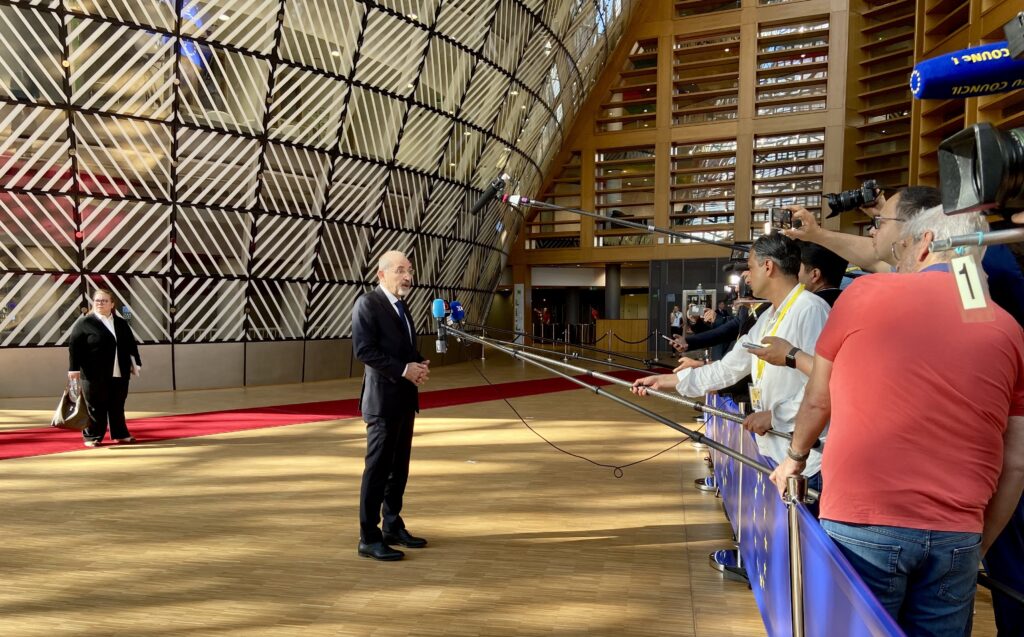
Upon his arrival at the Europa building on Thursday morning, Ayman Safadi, the Jordanian foreign minister, surprised reporters by announcing that Jordan was preparing to propose the establishment of an «international fund to facilitate the voluntary return of Syrian refugees to Syria». In his initial conversation with journalists, Safadi reiterated what he later emphasised in his speech during the opening session: Jordan receives the highest number of refugees relative to its population, and the influx of Syrian asylum seekers puts significant demographic and resource pressures on the country. Safadi highlighted that since 2011, there have been 200,000 Syrians born in Jordan, and there has been a concerning decline in support provided to Jordan, describing it as «significant and dangerous». After defending the Arab initiative and its «step-by-step» approach, Safadi stated: «We [in Jordan] have exceeded our capacities significantly, and we are sounding the alarm bell. The ultimate solution lies in the voluntary return of Syrians to their country. We must accelerate efforts based on reasonable assumptions to resolve the Syrian crisis». While Safadi restated the proposal for the Voluntary Return Support Fund, he did not offer specific data or additional details. Current information indicates that this is a fresh initiative from Jordan that was not discussed during the recent Arab summit in Saudi Arabia, even though it seems to be in line with the summit’s objectives.
Lebanese Foreign Minister Abdullah Bouhabib also addressed the opening session, highlighting key points from a Lebanese working paper on «the displaced Syrians», which has been recently covered in the press. Bouhabib expressed his frustration with the international community’s lack of support for Lebanon, emphasising that the country hosts «over one and a half million displaced Syrians». He cautioned against the dangers of Syrian displacement on the social fabric of Lebanon, citing potential tensions arising from competition for job opportunities between Lebanese and Syrians. Bouhabib affirmed Lebanon’s willingness to cooperate with international bodies to ensure dignified conditions and the voluntary return of Syrians in accordance with international humanitarian law. However, he warned that Lebanon will not tolerate «becoming a massive refugee camp in the eastern Mediterranean». On the political front, Bouhabib expressed Lebanon’s support for the Arab initiative, while expressing concerns about the fate of Resolution 2254 and its implementation, drawing parallels with previous resolutions like 242 and 425.
The morning session of the ministerial meeting commenced with a prerecorded protocol speech by United Nations Secretary-General António Guterres. It was followed by speeches from the heads of delegations representing Turkey (Ambassador Faruk Kaymakcı) and Egypt (Ambassador Badr Abdel-Aty). Both speeches did not introduce anything new regarding their countries’ well-known positions on the humanitarian crisis, refugees, and potential solutions in Syria. Additionally, Geir Pedersen, the UN Special Envoy for Syria, delivered a speech in which he commended the renewed efforts to invigorate the Constitutional Committee. Pedersen urged the delegations to contribute to alleviating the suffering of the Syrian people and emphasised the importance of listening to the insights and advice provided by representatives from the Civil Society Support Room and the Syrian Women Advisory Group during the afternoon sessions.
In addition to the speeches delivered by representatives from neighboring countries and UN officials, the morning session held on the «Day of Dialogue» featured remarks from the Civil Society Panels rapporteurs. These included Roula al-Rekbie, Country Director for Women Now for Development; Amany Qaddour, Regional Director of Syria Relief; Roula Baghdadi, Executive Director of Dawlaty Foundation; and Mariana Karkoutly, human rights activist and co-founder of Huquqyat organisation.
The EU will not change its policies
During the morning ministerial sessions, a press conference was held by Josep Borrell, the High Representative for Foreign Affairs of the European Union and the President of the Conference. In his remarks, Borrell emphasised the significance of the EU’s role in Syria as «the largest donor for humanitarian action», reaffirming the Union’s support for the Syrian people in their ongoing struggles. Regarding the political aspect, Borrell stated: «We will not re-establish full diplomatic relations with the Assad regime, or start working on reconstruction, until a genuine and comprehensive political transition is firmly under way… And we will do it in accordance with the United Nations [Security Council] resolution.». In his speech, Borrell defended the European sanctions imposed on the Syrian regime and its allies, clarifying that they target the regime and not the Syrian people. He attributed the deteriorating living conditions in Syria to the regime’s repression and corruption. The High Representative also emphasised the EU’s commitment to justice, accountability, and supporting victims of gross human rights violations in Syria while holding the perpetrators responsible.
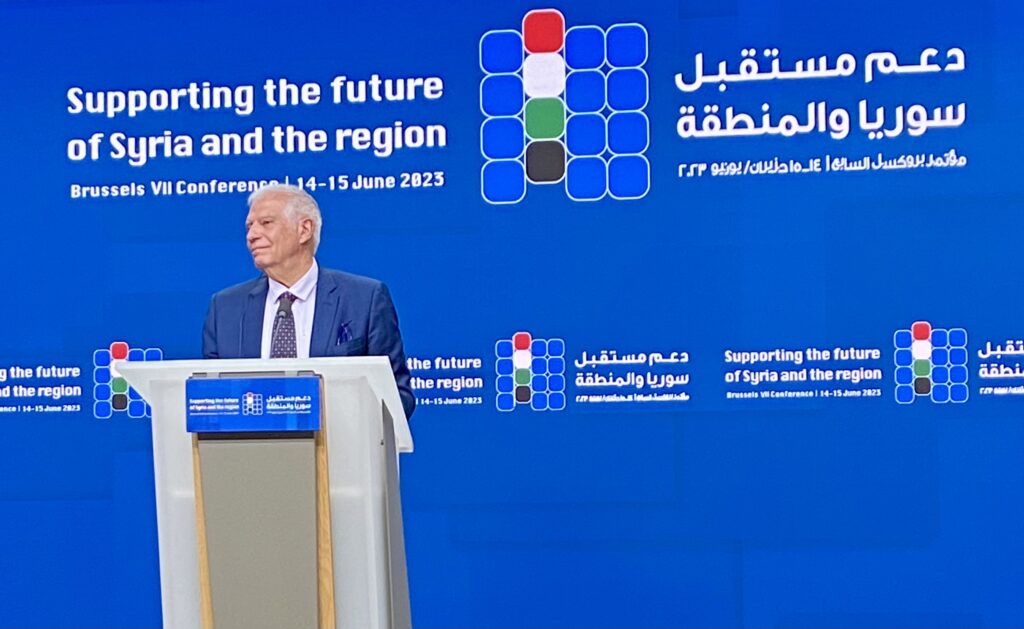
Borrell openly acknowledged that there is a lack of agreement between the EU and the Arab League regarding the recent steps of normalisation with the Syrian regime, stating: «We have not changed our political approach. We are not on the same line as the Arab League, that is clear… As the Arab League believes that this new policy can bring some results, we will support them but keep our position».
When asked by Aljumhuriya.net about the EU’s stance on the reports of severe violations against Syrian refugees in Lebanon, particularly regarding forced deportations, and how the principle of «conditional support» for host countries addresses such issues, Borrell responded: «We know about some of these events that you are mentioning. We cannot accept that the refugees could be forced to go back to Syria without the conditions for a safe and dignified return being fulfilled». Borrell added: «These kinds of policies of sending these people to Syria by force have been proven to be completely ineffective, because people come back. You send them back by the door and they come back by the window. So, this is not the answer to the situation». However, Borrell also emphasised the need to understand Lebanon’s urgent need for support in meeting the needs of both the Lebanese population and the refugees, stating: «If you compare the living standards of the population and the refugees, both are bad. In order for the civil population to understand that they have to continue hosting these refugees, they need stronger support from the international community… This is the purpose of this Conference».
Following the HR/VP press conference and a lunch break, the afternoon sessions concluded with contributions from Syrian representatives Sawsan Zakzak, Representative of Syrian Women Advisory Group, Bahjat Hajjar, Representative of Civil Society Support Room, and other officials from prominent international humanitarian organisations. Subsequently, support pledges from a wide range of donors, including countries, international institutions, and development banks were presented in detail.
Day of Dialogue
The Brussels conference typically spans across two days. The first day is dedicated to discussions and interactions among representatives from humanitarian and relief agencies, civil society organisations and institutions from both inside Syria and the Syrian diaspora, institutions working with Syrian refugees in neighboring countries, international humanitarian and human rights organisations, as well as ambassadors and representatives from missions involved with Syria. On this «Day of Dialogue», meaningful discussions and productive exchanges of ideas take place. The derived outcomes and conclusions are then conveyed to the ministerial conference sessions on the second day, with selected and scheduled speakers presenting key points. Notably, neither diplomats from the Syrian regime nor representatives of any opposition groups were present on either of the two days.
The «Day of Dialogue» sessions took place under the dome of the European Parliament headquarters in Brussels, the third of the gigantic federal buildings surrounded by a forest of shorter office buildings in the European Quarter of Brussels. The expansive parliamentary hall provided the setting, with an open space in front of the presidential rostrum adorned with a large banner displaying the conference name. Nearly half of the 800 seats in the hall were occupied by representatives from Syrian institutions, neighboring countries, international personnel, and diplomats. Journalists, including those from Aljumhuriya.net, were seated in the balcony overlooking the hall, closely following the day’s proceedings. The sessions were marked by active participation, with many attendees eagerly raising their hands, giving the impression of a parliamentary vote to someone entering the hall without prior knowledge of its purpose.
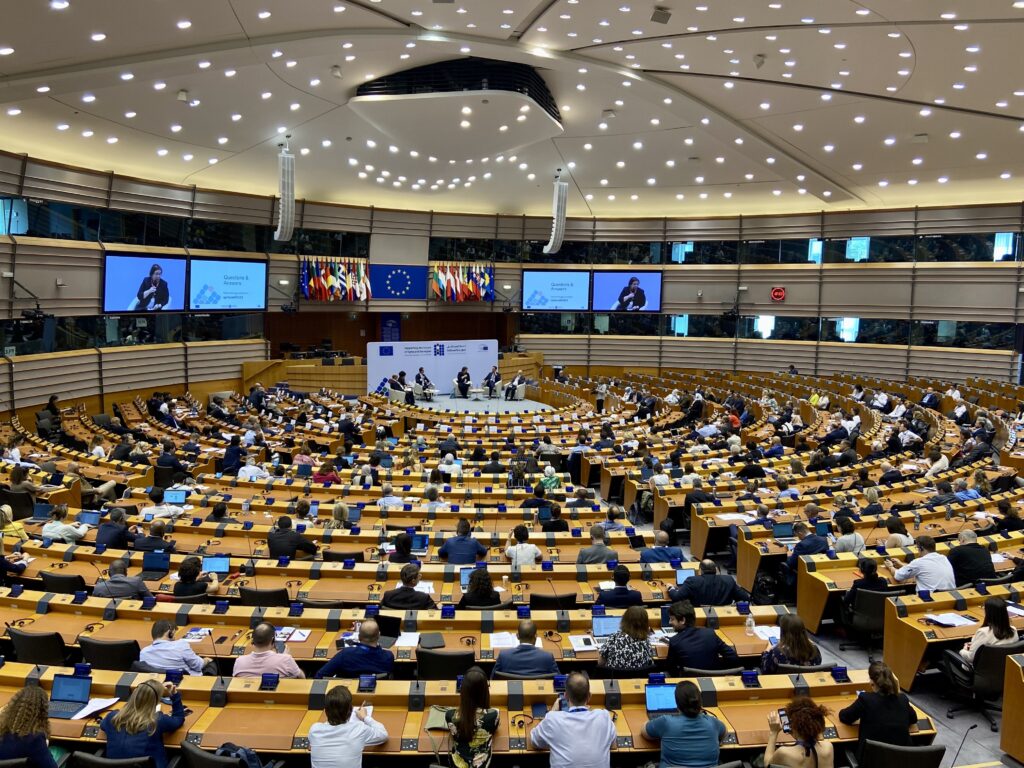
The discussions during the «Day of Dialogue» encompassed diverse sections, including an opening session titled «Perspectives from the region on civil society consultations», a session focused on «Addressing basic needs, access to basic services, and early recovery in the Syrian context», another session centred around «Developing opportunities at the local level: empowering and protecting local leadership», and finally, a pre-closing session dedicated to «Furthering justice and accountability for the Syrian people».
During the initial sessions, several recurring ideas emerged, highlighting the challenges faced in humanitarian and civil work across different areas in Syria and neighboring countries. The resilience and strength exhibited by Syrian society during these difficult times were also emphasised, showcasing a response that transcended borders and regional divisions. Despite the numerous difficulties, limitations, and resource constraints, grassroot movements demonstrated greater speed and agility in their response compared to larger international bodies. Participants stressed the importance of harnessing and building upon this local vitality, fostering greater collaboration between the domestic and diaspora communities. A notable example of successful collaboration between the two, as highlighted by Amany Qaddour, was the healthcare sector, as a comprehensive healthcare system has been established, catering to the diverse needs of various regions in Syria.
Moreover, during the initial sessions, it became clear that the notion of «early recovery», supported by the European Union and other entities, raised significant concerns among Syrian participants. This concept suggests a transition to a phase that comes after the end of the underlying causes of ongoing harm, but its political implications regarding a comprehensive political solution remain uncertain. The notion was met with Syrian scepticism and ridicule, not only within the conference hall but also in the corridors, sparking ongoing discussions long after the sessions had ended. Andreas Papaconstantinou, Director Neighborhood & Middle East (DG ECHO), addressed these concerns in his speech, defending the term and underscoring its necessity in addressing long-term needs beyond immediate emergency response. Papaconstantinou emphasised that the term is not «controversial» but rather a «matter of fact», having been an integral part of the EU’s operations for a considerable period now.
The penultimate session on accountability and justice was particularly engaging and emotionally charged. This was primarily due to the sensitive nature of the topic and the profound concerns it raised. Wafa Ali Mustafa’s passionate remarks added to the intensity of the discussion, as she strongly criticised the path of normalisation and the attempts to downplay the regime’s responsibility for its crimes. She also emphasised the crucial importance of addressing the plight of male and female detainees in Syria. The session included informative presentations on the International, Impartial, and Independent Mechanism for Syria (IIIM), the ongoing cases related to Syria being pursued by the French Public Prosecutor, as well as updates on the Syrian Torture Trial in Koblenz, Germany.
The term «Dialogue Day» may seem somewhat exaggerated since the format primarily consists of scheduled sessions with multiple speakers and limited time for extensive dialogue due to the large number of attendees. However, it remains a significant annual occasion for individuals from various regions of Syria and its diaspora to come together under one roof. It provides a valuable platform for networking, communication, exchanging perspectives, and fostering critical thinking. Additionally, the seminars and dialogue sessions held in the days leading up to the Brussels conference offer an enriched opportunity to showcase important programs or reports and facilitate inter-Syrian discussions among civil actors from diverse backgrounds and areas of expertise.
The «Day of Dialogue» came to a close with a speech delivered by Hélène Le Gal, Managing Director for Middle East and North Africa (EEAS). In her address, Le Gal reiterated the key pillars of the EU’s policy towards Syria (further affirmed by Josep Borrell the following morning): no re-establishment of diplomatic relations, no provision of funds for reconstruction, and the continuation of sanctions until a genuine political process is established.
Before Ms. Le Gal delivered her closing remarks, Michael Köhler, Deputy Director-General (DG ECHO) took the floor and reminded everyone that they were at the Seventh Brussels Conference. He pondered whether there would be an Eighth, Tenth, or even Twelfth Brussels Conference. Koehler expressed both a desire for and ambivalence towards the continuation of the conference. On one hand, he hoped that the need for the Brussels conference would no longer exist, signalling an end to the humanitarian crisis. On the other hand, he wished for its continuity as it would signify an ongoing commitment to supporting humanitarian efforts in and around Syria. This conflicting sentiment was shared by the author of these lines, who reflected on the conference while departing from the grand bureaucratic buildings adorned with the blue flag and yellow stars. Paradoxically, it is within these very walls that circumstances conducive to disasters are sometimes generated. The recent tragic shipwreck off the coast of Greece, where at least 78 individuals, including Syrians and Palestinian-Syrians, lost their lives, serves as a stark example. Remarkably, this incident occurred under the jurisdiction of Frontex, the European border protection force headquartered in one of these sombre grey buildings adorned with the blue flag.


